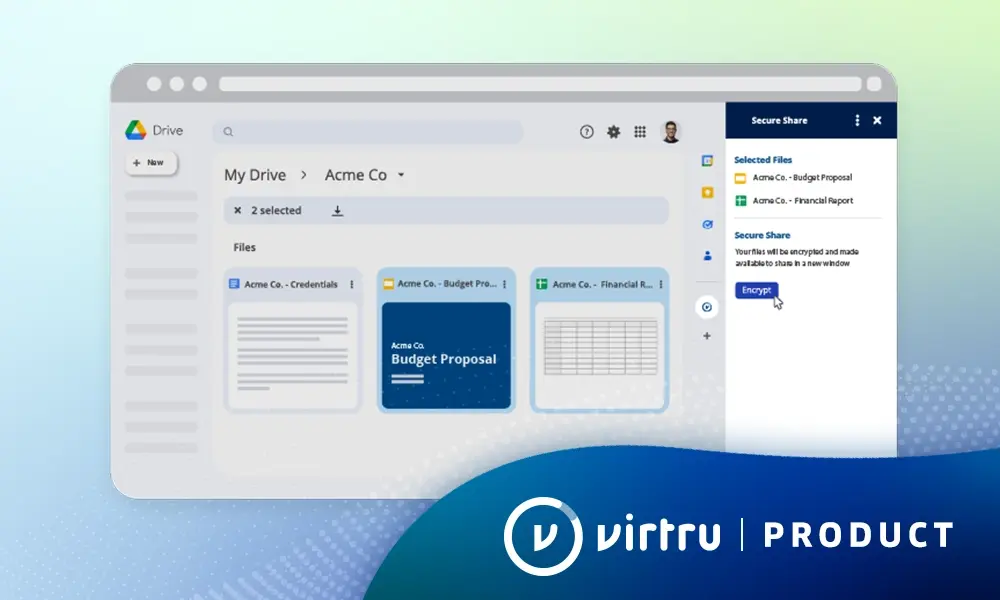TABLE OF CONTENTS
See Virtru In Action

Sign Up for the Virtru Newsletter

“Which cloud collaboration platform provides superior data-centric security, compliance, and privacy?”
It’s the million-dollar question from technology leaders around the world. In the past year, Google has introduced capabilities that significantly distinguish Google Workspace from Microsoft Office 365. In this Hash It Out episode, Virtru’s Google partnership GTM lead, Matt Sack, and Austin Reeder, a Workspace specialist at SADA and former architect of DISH Network’s migration from Microsoft Office 365 to Google, discuss the privacy and security benefits of Google Cloud and how the Virtru Data Security Platform works in tandem with Google services.
The episode opens with a conversation between Sack and Reeder about the difference between Google Workspace and Microsoft Office 365. The two discuss trends they’re seeing with customers migrating to Google, and Reeder knows this topic well. He shares his own experience with how he worked with DISH Network to help the company migrate from Microsoft to Google, and how the partnership between Google and Virtru helps to strengthen digital security and privacy at Reeder’s current firm, SADA.
Reeder explains, “The thing that Google’s done to make this really easy with client-side encryption, is that if you're going to encrypt this data in transit, you're going to send it to a third party. They're allowing you to do so in a way where you can use a third-party tool or you can manage your own private keystore, and that's really where Virtru comes into play, right, so if you're going to start to leverage that client-side encryption functionality with Google, essentially what they're saying, and in the simplest form, is, “We don't want to look at the data.”
That’s a great thing for data privacy and data sovereignty; increasingly, organizations want to be able to use the cloud providers of their choice without exposing all their data to that provider. When you look at the broader security landscape, it’s easy to see why. Data breaches are escalating in frequency and sophistication — Microsoft, for example, has seen several breaches so far this year, including one that exposed government employees’ email information.
Businesses of all sizes are generating and storing more sensitive data than ever before. This data includes customer PII, financial information, and intellectual property. It’s essential that businesses protect this data from unauthorized access, both inside and outside of the organization. Both Microsoft and Google are major leaders in privacy and security, but you shouldn’t put all your eggs in one basket. It’s a better strategy to ensure the separation of your own data from your cloud providers and the other tools you’re using, and to have multiple layers in place to protect your data, should something go wrong.
Virtru’s encryption supports organizations and firms to control and protect their data. Whether a firm aligns with Google or Microsoft (or both), Virtru has the right tools for client-side encryption, automated server-side security, and so much more. Virtru provides complete visibility and control over the data that moves in and out of your organization.
Want to see how Virtru can help strengthen your data-centric security? Start the conversation by reaching out to our team for a personalized demo.
See Virtru In Action
Sign Up for the Virtru Newsletter











Contact us to learn more about our partnership opportunities.